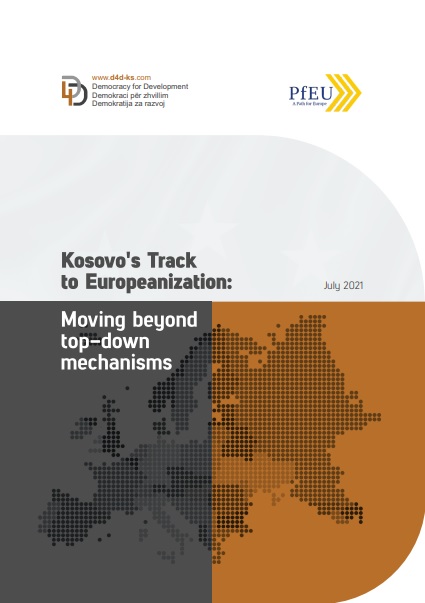
Kosovo’s Track to Europeanization: Moving beyond top-down mechanisms
31 August, 2021
Europeanization has transformed from an aspiration to an obligation and this in term has created a need for sacrificing internal democracy in terms of EU integration. Subsequently, in most cases, this results in not only a lack of implementation but more importantly a lack of ability to implement legislation. The difference being that lack of implementation may come due to lack of political will, whilst lack of ability to implement comes from the weak absorption of transformative power that the EU intends to achieve. The main issue lies in the contradictions between Europeanization mechanisms centered on conditionality and what the empirical research is pointing out, namely the reality of EU-internal politics and domestic processes and capabilities to adapt to set conditions. Hence, there is a need for revisiting and revising Europeanization mechanisms.
The aim of this policy brief is to outline the key challenges on Kosovo’s reform path, outlining bottlenecks and discussing whether a bottom-up approach can become a new catalyst for embracing Europeanization effectively. The brief provides an overview of the Europeanization process, an analysis of Kosovo as a case study of the shortcomings of current Europeanization mechanisms, and also an insight on how Germany’s role could be enhanced in order to bring back credibility to Europeanization.
This publication was written in cooperation with the Democracy for Development Institute (D4D) as part of their project “Track 2 to Europeanization: A partnership approach”, supported by the Open Society Foundations.